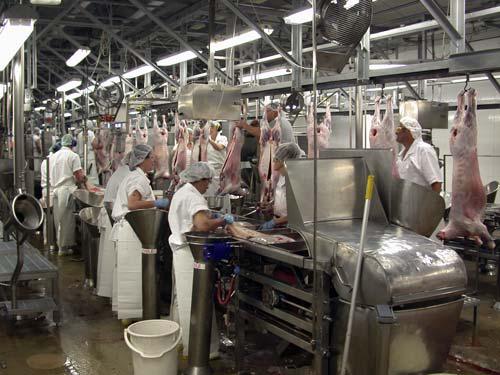GWT- Who We Have Helped With an Integrated Electrocoagulation Effluent Treatment Plant

At Genesis Water Technologies (GWT), we are dedicated to helping our clients achieve the best possible results at an optimized cost with their effluent treatment plants.
Through the use of our design engineering experience and knowledge along with our advanced and innovative treatment technology, we have succeeded in this regard in several industries.
One such technology is our specialized electrocoagulation (EC) system, utilized as part of an integrated effluent treatment plant.
EC is becoming more and more recognized in the world of water & wastewater treatment for its effective and cost optimized removal of suspended solids, among other particular contaminants. Its versatility has allowed us to aid clients in many different industries.
Here are just a few of the industries we have assisted with our EC systems as part of their effluent treatment plants, and how we have helped them meet their goals.
Pulp and Paper
Making pulp and paper uses a surprisingly large amount of water. Nearly every stage in the manufacturing process requires water. At the end, when the pulp is loaded into the paper machine, all of that water is squeezed out in two stages before passing through a drying stage.
Both the pulp and paper making stages produce significant sludge and wastewater volumes. These wastes can contain various solids, chlorinated organic compounds, chemical oxygen demand (COD), biological oxygen demand (BOD), bacteria, and potentially other contaminants.
Many mills wish to reuse the wastewater to decrease the amount they spend on purchasing fresh water. Over 3/4 of wastewater generated and treated in the effluent treatment plant comes from paper processing.
GWT used an EC system coupled with dissolved air flotation and a polishing filtration system as part of an effluent treatment plant to greatly reduce the contaminants and allow the treated water to be sustainably reused.
The BOD, COD, turbidity, and total suspended solids (TSS) were all reduced enough in this effluent treatment plant process, that the wastewater could be reused onsite.
Also, the volume of produced sludge was reduced, and it was easier to dewater and dispose of.
Textiles
Water is used gratuitously in the dying process of textiles, as well as washing the raw materials. Wool and cotton fabrics require more water to produce them than materials like polyester or nylon.
Wastewater from this industry contains constituents like BOD, COD, TSS, organics, color, and total dissolved solids (TDS).
These are some contaminants that could not be easily treated in a conventional effluent treatment plant.
Genesis Water Technologies used an EC system followed by a dissolved air flotation system and finished off with polishing filtration and reverse osmosis desalination to allow for reuse in this specialized effluent treatment plant for our textile clients.
The treatment solution reduced the costs of fresh water acquisition as well as reductions in discharge costs from lower sludge volumes.
Paint and Pigment
The paint and pigment industry uses considerable amounts of water during production as wash water and in the composition of products.
The bulk of the produced wastewater comes from the cleaning of various machines, tanks, and mixers.
Contaminants in this industry’s wastewater are typically BOD, COD, suspended solids, volatile organic compounds (VOCs), other toxic compounds, and color.
The wastewater was prescreened before entering the EC reactor and then on to secondary clarification. Finally, it was passed through a microfiltration unit to get rid of excess color and other colloidal solid particulates.
The treated water from this specialized effluent treatment plant was able to be reused in washing processes as well as cooling tower water makeup.
Reductions in discharge costs were observed as well as expenditures on freshwater usage, thanks to this reuse process.
Food/Beverage Processing
Food and beverage processing uses water in many of its production steps such as boiling, cooling, ingredients, equipment cleaning, and storage. It is estimated that water is used more than any other ingredient in the food and beverage industry.
This industry can produce wastewater that contains TSS, BOD, COD, fats, oils, grease, ammonia, phosphorus, nitrogen, and pathogens.
To treat these contaminants, the wastewater entering this retrofitted effluent treatment plant was prescreened and then sent to the EC system, followed by a dissolved air flotation system to remove the coagulated solids. This treated water was polished via a tertiary treatment step as well for reuse purposes.
Because of the high volume of fats, oils, and grease in this application, those constituents were extracted in a sludge process to be used for energy production. The a portion of treated water was able to be reused for non potable processes.
Electrocoagulation has the versatility to be used in a wide range of industries and municipalities. Genesis Water Technologies continues to demonstrate that.
In most cases, the wastewater from the effluent treatment plant, once treated, is able to be reused in the process either in the same manner or in a different process on site. In cases like the fish processing application, certain separated sludge solid constituents can also be potentially reused for energy production.
For industries that produce sludge, costs of disposal can be reduced since EC can reduce the volume of sludge produced and ensure that it passes TCLP standards. There is also potential for the sludge to be used as an additive to organic fertilizer to be used in farming or horticulture applications.
Interested in how a GWT specialized EC system could help you obtain optimized treatment results from your effluent treatment plant or your clients? Interested in potentially reducing the operating costs for your organization or municipality? Give us a call at 1-877-267-3699 in the USA or email us at customersupport@genesiswatertech.com for a free initial consultation to discuss your application.

